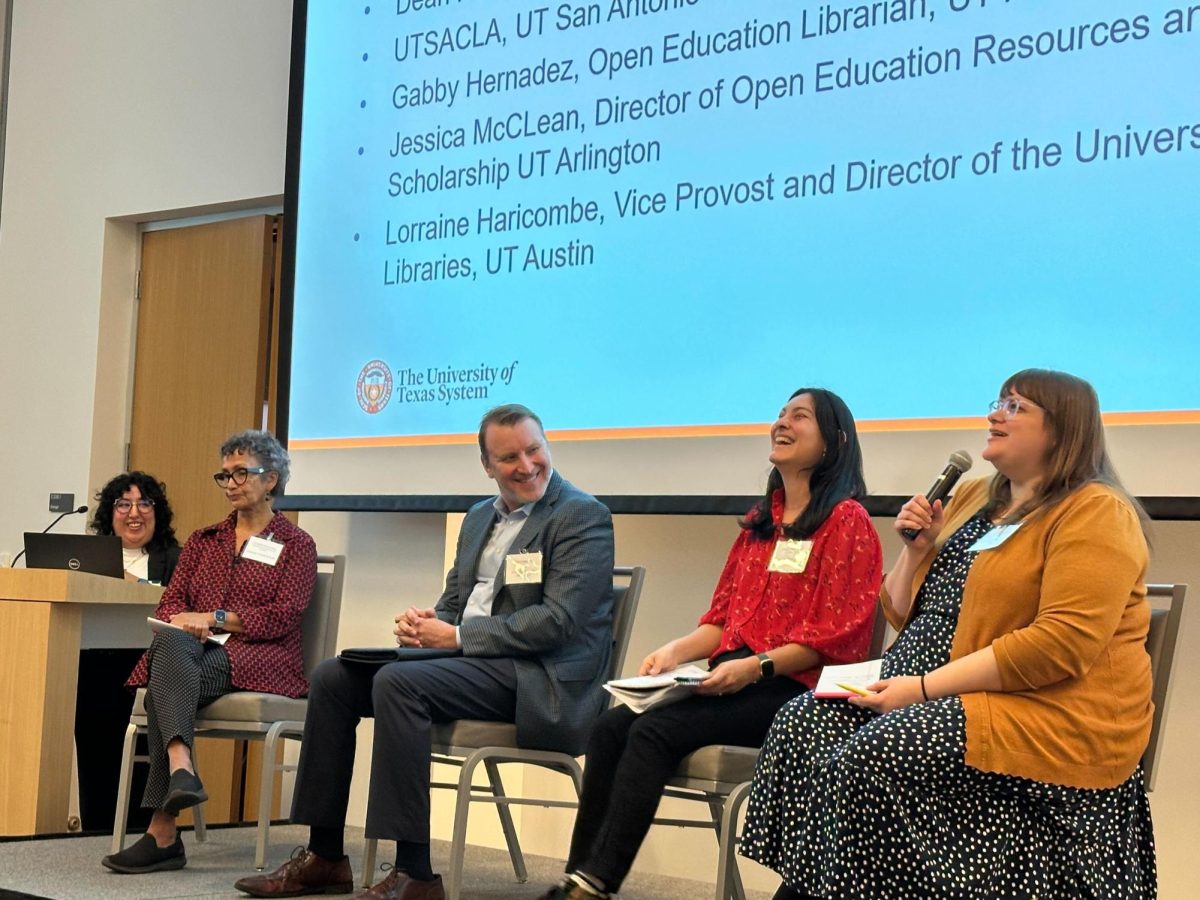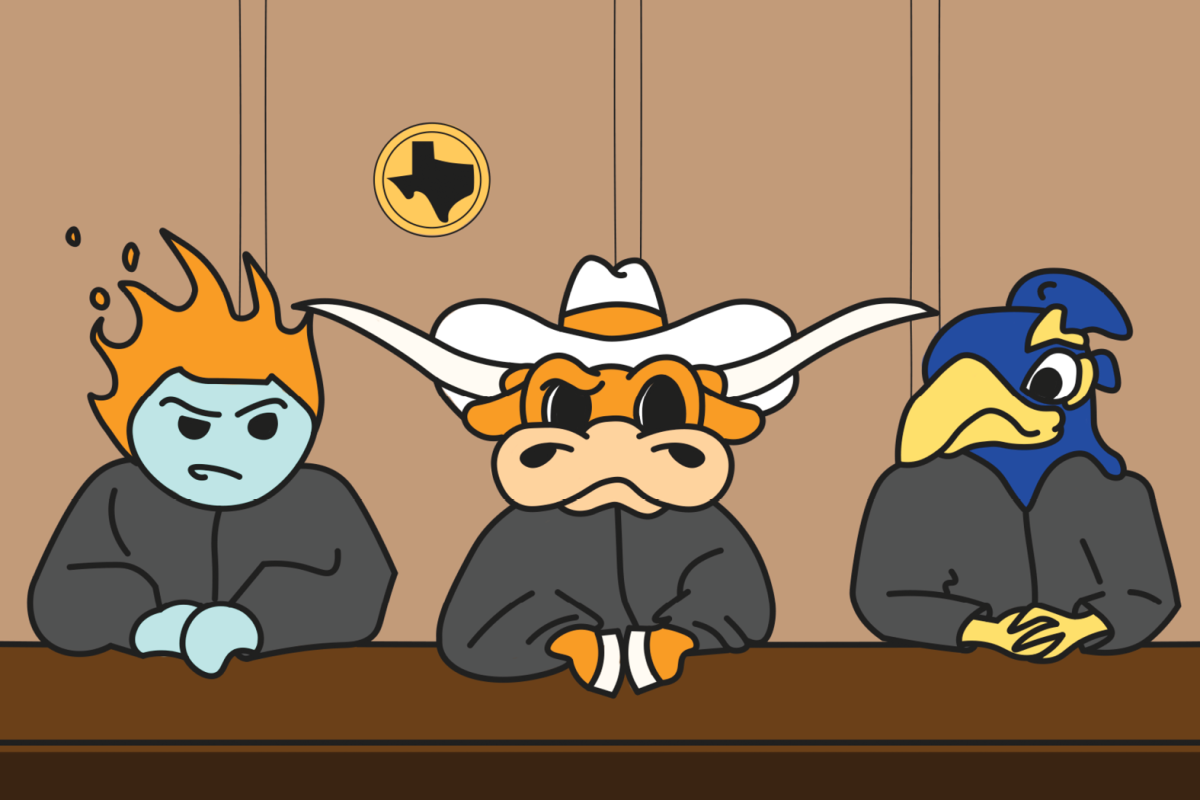Editor's note: This story has been updated throughout to reflect the most recent fall plans for each institution.
All eight UT System academic institutions have released their plans for fall 2020, according to a UT System press release sent out July 3. All academic institutions will close most in-person activities and go online after Thanksgiving break, Chancellor James Milliken said at the UT System board meeting Monday.
“Each institution has plans for fully online, in-person and hybrid course experiences, and … each will be prepared to step back or close in-person activities, if conditions require it,” Milliken said.
The System Board of Regents approved all institutions’ fall plans at the board meeting. Institutions have made their plans publicly available or will do so in the next few days, according to a UT System press release published Monday.
Steve Leslie, executive vice chancellor of academic affairs for the UT System, said the System is having weekly calls with the academic institutions’ presidents and provosts to discuss their fall semester plans.
“It’s not the UT System deciding (the plans), it's talking to the presidents and determining what is best for the campuses,” Leslie said.
The Daily Texan is covering in-depth how UT-Austin is planning for the fall 2020 semester. Read the latest update here.
UT-Arlington
UT-Arlington will offer courses in-person, online asynchronous, which are online classes without live lectures, online synchronous, or as a hybrid, according to a report released June 21.
“In Fall 2020, it is expected that courses will expand to fit within seven different defined modalities,” the report said. “This expanded scope demands robust training concepts to ensure faculty are equipped to maintain high-quality instruction and the student experience regardless of modality.”
Classrooms will only allow for 25% to 34% occupancy, according to an announcement sent out June 26.
UT-Arlington students will not return to campus after Thanksgiving break and will finish the semester online, University spokesperson Joe Carpenter said.
UT-Arlington announced June 8 that face coverings must be worn in campus buildings and elsewhere on campus where social distancing is hard to maintain, with a few exceptions. The protocol is in effect until further notice.
UT-Dallas
Students who do not want to return to classes can choose to take all their courses online, according to the UT-Dallas website.
There are five ways the courses can be taken, including a flexible or “hyflex” option that allows students to select a day of the week they will attend the course in person and attend the class online the rest of the week, according to the website.
UT-Dallas reconfigured classroom settings to ensure a difference of 6 feet or more is maintained for in-person classes, according to the University’s website.
Face coverings will be required in certain areas of campus, including hallways, common spaces, elevators and classrooms, according to the website.
All campus housing will operate at full capacity with single-occupancy bedrooms, according to the website.
The University set aside 110 housing beds for students who test positive for COVID-19, according to an email sent July 16.
Students who choose to live on campus must sign a housing addendum that requires a student to report if they test positive or were in close contact with someone who tested positive for COVID-19, according to the email.
UT-El Paso
UT-El Paso will offer accommodations for students who need online options for all courses, with the exception of specific accredited programs that require in-person instruction, according to UT-El Paso’s website.
Students living on campus will be assigned to private bedrooms, according to the University’s housing website. The University will instate occupancy limits in common spaces, such as laundry rooms, according to the website.
Residents will be required to clean their own rooms, bathroom and kitchen regularly. Their rooms will be randomly checked every three to four weeks by housing staff, according to the website.16 apartments will be set aside for on-campus isolation if the student is unable to return home, according to the website.
Face coverings will be required in public and shared areas of campus until further notice, according to an announcement sent out May 27.
UT-Permian Basin
UT-Permian Basin will offer face-to-face, online and hybrid classes in the fall, and all classes after Thanksgiving break will be virtual, according to a June 22 letter from the president.
“Remote provisions will be made for students to complete face-to-face courses if during the semester they find they are unable to come to campus,” the letter said. “Faculty members also have the option to offer face-to-face courses online if needed.”
For on-campus housing, there will be only one resident per bedroom and no more than two residents per bathroom, according to the letter. Roommates will be assigned based on athletic participation or academic discipline.
Common spaces, including study rooms and TV areas, will have reduced capacity, according to the letter. Self-isolation spaces will be available for students who are ill, the letter said.
Residents living in the same unit will be considered a “pod” or group. The University will limit student interactions outside a student’s pod, according to a housing update sent out July 16.
All dining locations will be open with extended hours. There will be no self-serve food stations and take-out will be available, according to the letter.
Departments may schedule partial staffing on alternating days, according to the letter. For example, staff in “Group A” will work Monday, Wednesday and Friday, while “Group B” works the remaining days.
Staff members may work fully remotely if their work allows them to, according to the letter.
UT-Rio Grande Valley
68% of courses at UT-Rio Grande Valley will be solely online, according to an update from July 9.
All courses with over 50 students will be delivered online at UT-Rio Grande Valley, according to Task Force guidelines released June 10.
University spokesperson Patrick Gonzales said UTRGV will divide fall courses into four categories: traditional face-to-face; online asynchronous, meaning online classes without live lectures; online synchronous, meaning online classes with live lectures; and hybrid in-person and online courses.
Gonzales said the University hopes to have a list of classes with their corresponding categories finalized in about two weeks.
“The next step is to provide as many options for our students so they can develop the best fall schedule that fits their needs,” Gonzales said.
Face coverings are required on campus inside all campus buildings, according to the guidelines.
Students who choose to stay on-campus will reside in single-occupancy rooms, according to the guidelines.
UT-San Antonio
All face-to-face classes will have a parallel online structure for students who cannot attend in person, according to UT-San Antonio’s website.
Maximum classroom capacity will be 40 students for face-to-face classes, according to the website.
The University will ensure physical distancing in student housing by taking preventative measures, such as installing physical barriers in shared bathroom spaces, according to a report released June 12.
Residents will be grouped into family units, consisting of two or more students who share a bathroom or common living area.
Face coverings will be required in all public and common spaces, according to the report.
The University has a plan in place if an area is exposed to a person with a potential or confirmed case of COVID-19, according to the report. This includes temporarily closing facilities and disinfection protocols.
The report states the University must reserve residential spaces for potential isolation and students quarantining.
UT-Tyler
Courses with multiple sections will have at least one online section for immunocompromised students or for students whose households “face other health challenges,” according to the University’s procedures document.
Housing facilities will operate at full housing occupancy, and each suite or apartment will operate at maximum capacity, according to the document. Residents will not be allowed to bring guests in.
Residents will be responsible for maintenance of their spaces and resident assistants will conduct monthly health and safety checks for residents, according to the document.
Dining locations on campus will have limited capacity and seating to accommodate for social distancing, according to the document.
All students, faculty, staff and visitors must wear face coverings in university buildings, classrooms and public areas, according to a July 6 update.





















